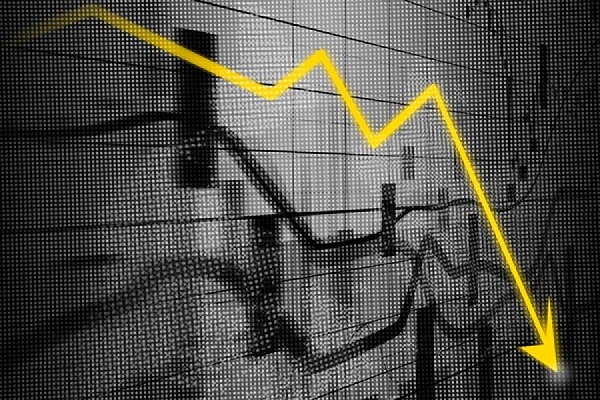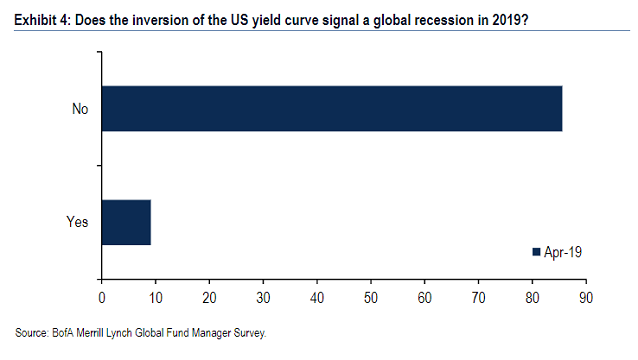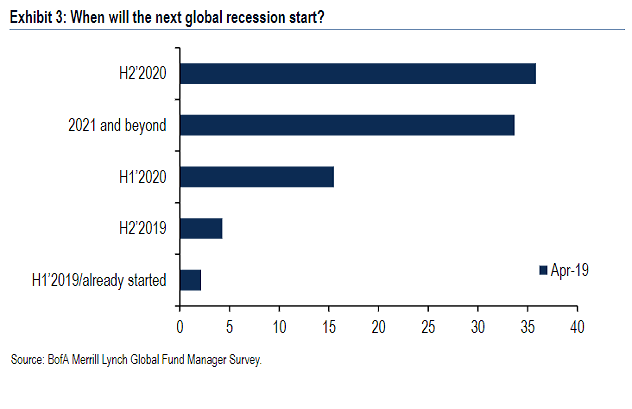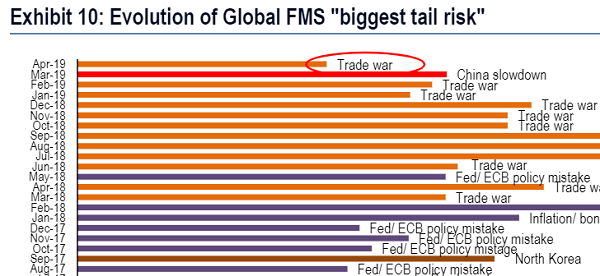Fund managers not scared of the yield curve
Only a small number of fund managers believe the yield curve's inversion signals an impending recession.
2nd May 2019 10:46
by Tom Bailey from interactive investor
Only a small number of fund managers believe the yield curve's inversion signals an impending recession.

At the end of last month trouble was brewing in the bond market as the yield curve inverted, stoking fears that a recession was around the corner.
The yield curve, the difference in yields between 3-month US government bonds and 10-year bonds, has historically been a reliable indicator of a coming recession.
Since 1958, the yield curve has inverted eight times. More than two thirds of the times it has inverted a recession has followed within two years.
With the US close to a record-long expansion, the inversion signalled the US economy may not be approaching its cyclical peak. That would also likely mean the past decade-long party in US equities would finally be over.
That fear, however, appears to have receded somewhat. Markets are up once more, and the S&P 500 is (as of 18 April) is less than 1% off its all-time high.
Fund managers are also not particularly concerned about the yield curve. According to The Bank of America Merrill April Global Fund Manager Survey, 86% believe yield curve inversion does not signal an impending recession.

Indeed, fund managers in general are not expecting the US economy to slip into negative territory in 2019. Only 6% of those surveyed said they expected a recession within the next year. As the chart below shows, most fund managers expect a recession either in the second half of 2020 or later.

However, that's not to say fund managers are necessary bullish. While not expecting an imminent recession, 66% expect said they expect a "low growth, low inflation" backdrop, the highest level since October 2016.
Indeed, many are positioned for a world of lower growth. As Bank of America Merrill Lynch notes: "Investors are positioned for 'secular stagnation', long assets that outperform when growth and rates fall (cash, emerging markets, utilities), and are short those that require higher growth & rates (equities, Eurozone, banks)."
Meanwhile, the US and China trade war has re-emerged as the top risk for investors, albeit with lower conviction than in previous months. Last month's most popular risk, the slowdown of the Chinese economy, has faded.

Full performance can be found on the company or index summary page on the interactive investor website. Simply click on the company's or index name highlighted in the article.
This article was originally published in our sister magazine Money Observer, which ceased publication in August 2020.
These articles are provided for information purposes only. Occasionally, an opinion about whether to buy or sell a specific investment may be provided by third parties. The content is not intended to be a personal recommendation to buy or sell any financial instrument or product, or to adopt any investment strategy as it is not provided based on an assessment of your investing knowledge and experience, your financial situation or your investment objectives. The value of your investments, and the income derived from them, may go down as well as up. You may not get back all the money that you invest. The investments referred to in this article may not be suitable for all investors, and if in doubt, an investor should seek advice from a qualified investment adviser.
Full performance can be found on the company or index summary page on the interactive investor website. Simply click on the company's or index name highlighted in the article.
These articles are provided for information purposes only. Occasionally, an opinion about whether to buy or sell a specific investment may be provided by third parties. The content is not intended to be a personal recommendation to buy or sell any financial instrument or product, or to adopt any investment strategy as it is not provided based on an assessment of your investing knowledge and experience, your financial situation or your investment objectives. The value of your investments, and the income derived from them, may go down as well as up. You may not get back all the money that you invest. The investments referred to in this article may not be suitable for all investors, and if in doubt, an investor should seek advice from a qualified investment adviser.
Full performance can be found on the company or index summary page on the interactive investor website. Simply click on the company's or index name highlighted in the article.